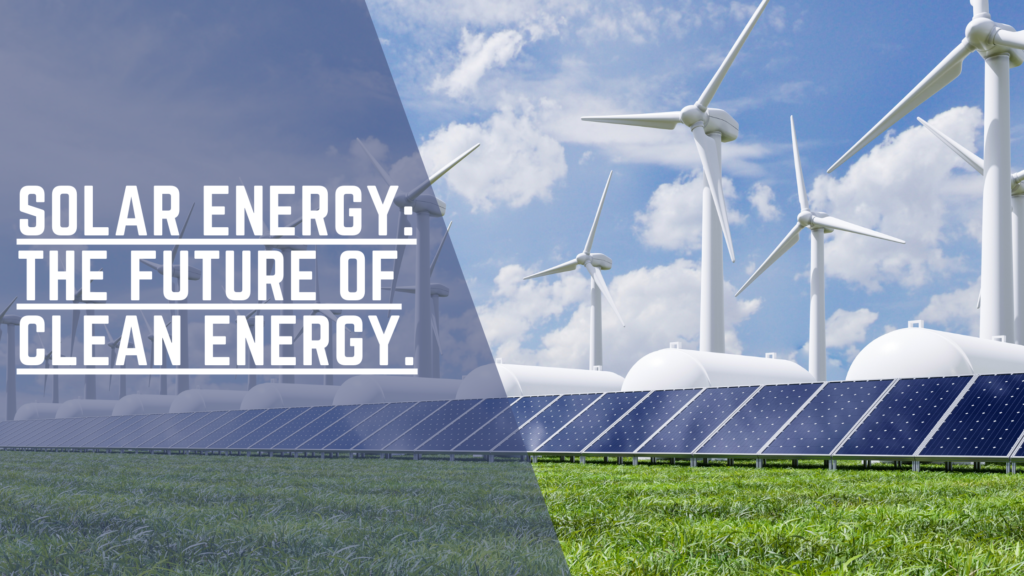“Unlocking the Power of Solar Energy: Insights and Innovations from Thermosun“.
Introduction:
In the realm of renewable energy, solar power stands out as a beacon of hope for a sustainable future. As the world grapples with the challenges of climate change and the need to transition to cleaner energy sources, solar energy emerges as a frontrunner in the race towards a greener tomorrow. This blog delves into the promising trajectory of solar energy, exploring its potential, advancements, and pivotal role in shaping the future of clean energy.
The Rise of Solar Energy
Solar energy has witnessed a remarkable ascent in recent years, driven by technological advancements, cost reductions, and increasing environmental consciousness. Here are key points highlighting the rise of solar energy:
- Technological Innovations: Breakthroughs in solar panel efficiency, energy storage solutions, and smart grid integration have propelled the adoption of solar energy on a global scale.
- Cost Competitiveness: The plummeting costs of solar panels and installation have made solar energy increasingly affordable and economically viable, challenging traditional fossil fuel sources.
- Environmental Benefits: Solar energy offers a clean, renewable alternative to fossil fuels, significantly reducing carbon emissions and mitigating the impact of climate change.
The Solar Energy Landscape: Current Trends and Projections
The solar energy sector is witnessing rapid growth and evolution, with several key trends shaping its trajectory towards a cleaner energy future:
- Utility-Scale Solar Installations: Large-scale solar projects are proliferating, contributing significantly to the expansion of solar capacity and the decarbonization of the energy sector.
- Residential Solar Adoption: The uptake of rooftop solar panels in residential settings is on the rise, empowering homeowners to generate their own clean energy and reduce reliance on the grid.
- Solar Energy Storage: Advances in energy storage technologies, such as batteries, are enhancing the reliability and flexibility of solar power systems, enabling round-the-clock energy supply.
The Role of Solar Panels in Harnessing Solar Energy
Solar panels, the cornerstone of solar energy systems, play a pivotal role in capturing sunlight and converting it into electricity. Here are key aspects highlighting the importance of solar panels:
- Photovoltaic Technology: Solar panels utilize photovoltaic cells to convert sunlight into electricity, harnessing the sun’s energy through a sustainable and renewable process.
- Efficiency Improvements: Ongoing research and development efforts are focused on enhancing the efficiency and performance of solar panels, maximizing energy generation and output.
- Sustainability Impact:
Solar panels offer a sustainable energy solution, reducing reliance on fossil fuels, lowering carbon emissions, and contributing to a cleaner environment.
Conclusion
In conclusion, solar energy stands at the forefront of the clean energy revolution, offering a sustainable, cost-effective, and environmentally friendly alternative to traditional energy sources. With ongoing advancements in technology, policy support, and public awareness, solar energy is poised to play a pivotal role in shaping a greener and more sustainable future for generations to come. Embracing solar power and investing in solar panels are crucial steps towards a cleaner, brighter tomorrow.
FAQ's
To determine the ideal size for a solar plant, consider factors like energy consumption, available roof space, budget, and local solar irradiance. A professional assessment can help recommend an appropriate capacity.
Solar systems typically require minimal maintenance. Regular inspections and cleaning of panels to remove dirt and debris are recommended. We also offer comprehensive maintenance services to ensure optimal performance and longevity.
Warranty durations vary depending on the manufacturer and product, but typically range from 10 to 25 years for panels and 5 to 10 years for inverters.


I am really inspired with your writing talents as neatly as with the structure on your weblog. Is that this a paid subject or did you modify it yourself? Anyway stay up the excellent high quality writing, it is rare to look a great blog like this one nowadays!